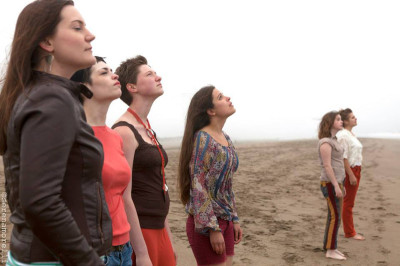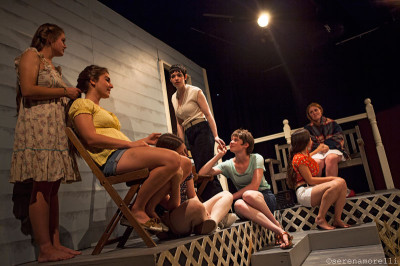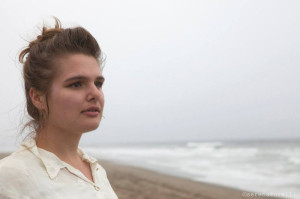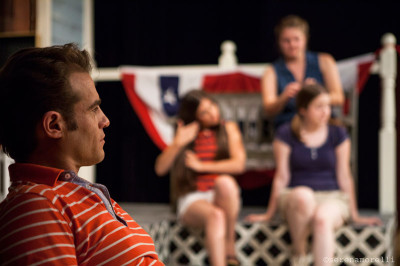The title is a dead giveaway. On the surface Pleiades appears to be a play about seven sisters from a wealthy American family summering in the Hamptons. It’s the kind of family that produces debutantes, although a few of the sisters are souring on the concept. That’s because it’s 1971, and the sisters are getting clued in to feminism, some more enthusiastically than others.
But on another level these seven sisters are also the Seven Sisters, the Pleiades, who became the star cluster of the same name in Greek mythology. Nymphs or minor goddesses, they’re the daughters of the Titan Atlas (you know, the guy who holds the heavens on his shoulders) and the sea-nymph Pleione. In local playwright Marissa Skudlarek’s drama, the legendary Maia, Electra, Taygete, Alcyone, Celaeno, Sterope and Merope become the Attlee sisters: Moira, Elaine, Teresa, Alison, Kelly, Sarah and Meredith, respectively.

The mythic content is a lot more than just an in-joke for the well read. It’s the play’s reason for being. Pleiades was written for the 2011 San Francisco Olympians Festival, an annual staged reading festival of plays by local writers about characters from Greek mythology. (Full disclosure: I’ve also participated in SF Olympians as a playwright, last year and again this year.) Now the play comes to fruition in its fully staged world premiere, courtesy of No Nude Men Productions at San Francisco’s small Phoenix Theatre.
It all takes place on and around the back porch of the sisters’ summer home, which looks humbly shack-like in Jennifer Varat’s simple but effective set. The first impression when you see all the sisters assembled is that seven really is a lot. And indeed, the play seems to scarcely have room for them all, or at least for them all to have something to do. And it can’t help but take a long time to begin keeping all the characters straight.

Soon a few of them begin to distinguish themselves. Moira (Susannah Lee) is the prim and proper eldest sister, haunted by past mistakes and taking on a maternal role in the absence of their parents. (The folks are occasionally referenced but mysteriously absent.) Annabelle King’s Alison is surly and combative, lying around reading Sylvia Plath when she’s not storming around in a huff.



